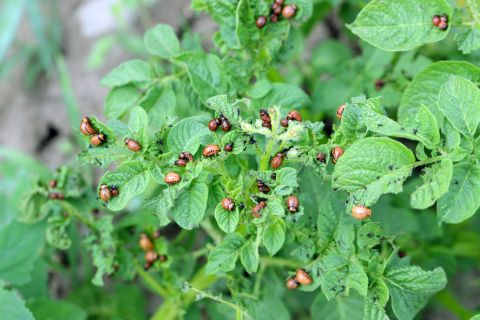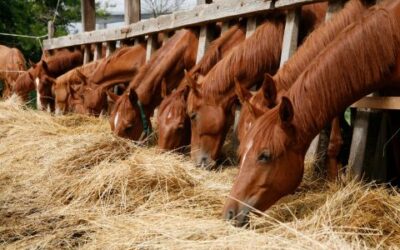
For every gardener, the thrill of watching a tiny seed sprout into a flourishing plant is undeniable. But along with the joy of nurturing life comes the constant battle against unwanted visitors: pests. These munching, burrowing, and sucking insects can quickly devour your garden’s bounty, leaving frustration in their wake. However, dealing with common garden pests doesn’t have to be a chore.
For many gardeners, dealing with pests is complicated by the lack of natural options. The good news is that you don’t have to wage war on these tiny terrors with chemical pesticides. There’s a whole arsenal of natural pest control methods at your disposal, many of which are safe for people, pets, and the environment. So grab your gardening gloves—not the bug spray—as we explore some of the most common garden pests and how to keep them at bay naturally.
Aphids: Tiny Terrorizers
These soft-bodied insects are some of the most common garden pests. They come in various colors and love to suck the sap out of your plants, causing stunted growth, wilting, and yellowing leaves.
- Natural Fighters: Ladybugs and lacewings are aphid’s natural enemies. Attract these beneficial insects by planting dill, fennel, and coriander around your vulnerable plants.
- Soap Spray Surprise: Mix a tablespoon of dish soap with a liter of water in a spray bottle. Spray directly on the aphids to dehydrate and kill them.
- Nature’s Nemesis: A strong blast of water from your hose can dislodge aphids from your plants. Repeat every few days until the problem is under control.
Beetles: The Chewing Crew
There are many types of beetles, and some can wreak havoc on your garden. Flea beetles love to munch on leaves, while Japanese beetles devour flowers and leaves alike.
- Hand-to-Beetle Combat: If you see large beetles, handpick and drop them into a bucket of soapy water.
- Row Covers: Protect young plants with floating row covers made from polyester fabric. These lightweight barriers allow sunlight and water to penetrate while keeping beetles away.
- Neem Oil Spray: Neem oil, a natural pesticide derived from the neem tree, can be effective against beetles. Follow the instructions on the label carefully when using neem oil.
Caterpillars: The Leaf-Eating Larvae
These colorful creatures may look harmless, but they can quickly turn your prized plants into skeletons.
- Go Guerrilla with Bacillus Thuringiensis (BT): This naturally occurring bacteria is toxic to caterpillars but safe for humans and beneficial insects.
- Bring on the Birds: Encourage birds to visit your garden by installing bird feeders and birdhouses. Birds love to snack on caterpillars.
- Handpick and Destroy: Look for caterpillars hiding on the undersides of leaves and pick them off by hand.
Grubs: The Root Ravagers
These plump, white larvae live underground and feast on plant roots. Their presence can cause stunted growth and wilting plants.
- Beneficial Nematodes: These microscopic worms are natural predators of grubs. They seek out and kill the grubs in the soil.
- Milky Spore: This naturally occurring bacteria targets and kills Japanese beetle grubs in the soil. Apply it in the late summer or early fall for the best results.
Remember: Prevention is key! Here are some additional tips to keep garden pests at bay:
- Practice Crop Rotation: Planting different crops in the same bed each year disrupts the life cycle of pests.
- Keep Your Garden Clean: Remove debris and fallen leaves where pests can overwinter and use a premium mulch to control the weeds.
- Choose Resistant Plants: Certain plant varieties are naturally more resistant to pests.
- Water Properly: Stressed plants are more susceptible to pests. Water your plants deeply and regularly according to their needs.
If you’re looking for natural garden pest control to ensure your produce is both healthy and safe for consumption, Lucerne Farms has everything you need to get started.




